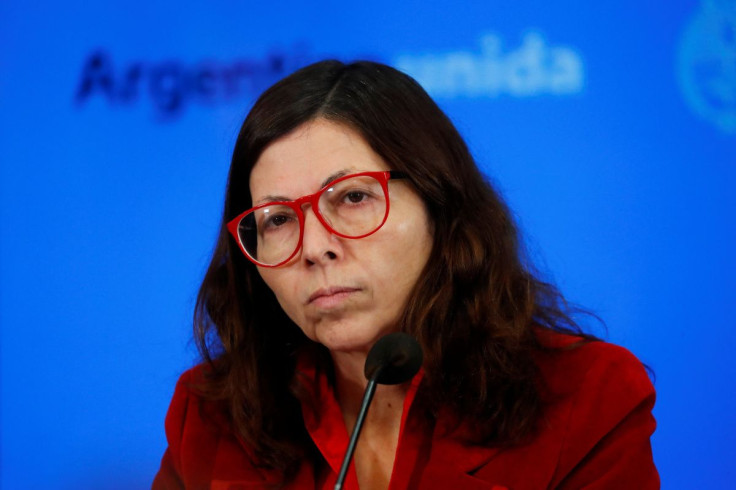Argentina's New Economy Chief Pledges Fiscal 'Order And Balance' Amid Turmoil

Argentina's new economy minister Silvina Batakis said on Monday she would target cutting the country's high fiscal deficit, pledging "order and balance" in a bid to tame spiraling inflation, tumbling markets and growing pressure on the peso.
Batakis, who took over last week after an abrupt shake-up at the ministry, said Argentina will move toward positive interest rates, maintain plans to cut energy subsidies and stick with goals agreed with the International Monetary Fund (IMF).
"We need to give some order and balance to the nation's public finances," she said at a news conference in Buenos Aires. She pledged new measures such as tying budget quotas to "real cash projections" to ensue a fiscal balance.
"That is to say we are not going to spend more than we have."
The South American country, a major grain exporter, is facing inflation estimated to hit 76% this year, pressure on the peso currency that has driven up the price of dollars in popular black markets and worryingly low foreign currency reserves.
That has been exacerbated by rising global food and energy costs linked to Russia's invasion of Ukraine, which has turbo-charged already high domestic inflation.
On Monday, sovereign bonds, already in distressed territory, dipped 0.5%. The black market peso strengthened slightly to 270 per dollar, but was still over double the official spot rate of 127 per dollar, which is shielded by tight currency controls.
The crisis has caused rifts in the ruling coalition between moderates around the president and a harder left wing allied with powerful Vice President Cristina Fernandez de Kirchner, which supports more spending to alleviate poverty.
Batakis took over last week after predecessor Martin Guzman, a close ally of the president, resigned abruptly after clashes with factions allied to the vice president, raising investor fears of a shift toward a looser economic policy.
On Monday, she pledged to boost production and exports, but emphasized the importance of the state staying solvent.
Argentina, which has cycled through economic crises for decades, has a $44 billion debt deal with the IMF agreed earlier this year. Protesters took to the streets over the weekend to criticize the government and the IMF.
"We need to defend the solvency of the state. And this has nothing to do with impositions from the IMF," Batakis said.
© Copyright Thomson Reuters 2024. All rights reserved.




















